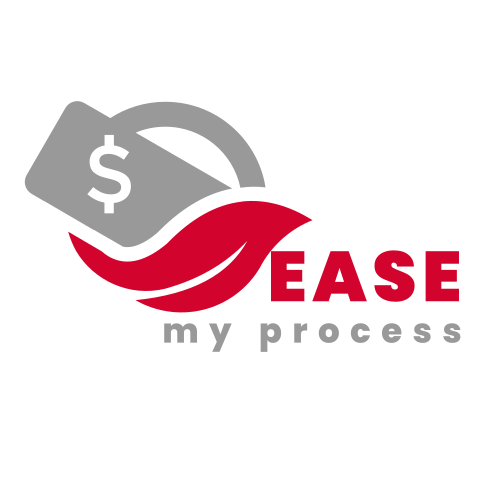- Published on
What is a SAFE? A Simple Agreement for Future Equity
- Authors

- Name
- Ease Pro
What is a SAFE?
(A Simple Agreement for Future Equity)
A SAFE is an investment contract between a startup and an investor.
- In exchange for funding today,
- Investor receives right to convert investment into equity (ownership) in future,
- typically during funding round or exit
Key Features:
- No Interest or Maturity Date
- Deferred Equity – No Immediate Ownership Valuation Cap & Discount Options
- Trigger-Based Conversion: SAFEs convert into equity only when a trigger event occurs: It's types:
🔷 Equity Financing Round
🔷 Liquidity Event (Acquisition / IPO)
🔷 Dissolution (Company Fails or Winds Down):
🔷 Optional Conversion Events : hitting a milestone or certain revenue/valuation.
SAFE with Discount – Cheaper Shares
- SAFE has 20% discount
- New investors pay ₹100/share You pay ₹80/share
- More shares for same money!
- Early investors get discounted entry.
Valuation Cap: This is the maximum company valuation at which the SAFE will convert into equity.
🔷Pre money valuation cap:
- Cap applied before investment is counted in company's value.
- Doesn't consider how much total money is raised through SAFEs.
🔷Post money valuation cap:
- The cap includes your investment + other SAFEs already raised.
- Gives a more accurate estimate of your final ownership %.
SCENARIOS FOR VALUATION CAP:
➡Scenario 1: Company Does Well – Big Growth
Startup: Bright Health
- You invest ₹50 lakh
- SAFE Valuation Cap = ₹10 Cr
- Company raises next round at ₹20 Cr
What Happens: You get shares as if company was worth ₹10 Cr
→ means you get more equity.
➡Scenario 2: Company Doesn't Go well
Startup: Tech spark
- You invest: ₹50 lakh
- SAFE Valuation Cap: ₹15 crore
- Later, the startup raises a priced round at: ₹8 crore (lower than your cap).
- The company didn't perform as well as expected.
- But because you're entering at a lower price, you get a larger slice of the company now.
➡Scenario 3: When a Company's Valuation Goes Too Low or Becomes "Negative"
First of all, if a company doesn't goes well and if it shuts down an investor may lose all it's money which was invested but he/she can take precautions.
How Can an Investor Protect Themselves?
1) Valuation Cap
Invest using SAFE with low valuation cap (like ₹20 crore /$2.5M).
If future valuation drops, your SAFE converts into more shares.
Get better value if company survives and grows again.
2) Early Trigger Clause
Add a rule in the SAFE: "If company doesn't raise funding in 18 months, my SAFE will convert into equity."
So you don't wait forever.
3) MFN (Most Favored Nation) Clause
If the company gives better terms to future investors (like 50% discount), you can adopt those better terms too.
Protects you from being left out.
4) Pro Rata Rights
If company raises again (even at low valuation), you have the right to invest more and maintain your ownership %.
5) Convertible Note Instead of SAFE
Convertible Notes are like loans — they must be repaid unless they convert.
If company fails, convertible note investors are ahead of SAFE holders in repayment.
Customizable Terms
➡Amendment Rights: Clause decides how and when company can change terms of the SAFE.
🔷 Why it's important: Let's say startup wants to:
- Change valuation cap later
- Add or remove investor protections
Without your amendment rights, they can do it without your permission (if majority agree).
📌 Key Terms to Look For: "Majority-in-interest" rule: If majority of SAFE holders approve, it binds everyone.
➡Conversion Threshold: This sets minimum size of next funding round for SAFE to convert into equity.
🔷 Why It Exists:
- Prevents your SAFE from converting too early in a small or friends-and-family round.
🔷 Why It Matters:
- Without this, company might convert SAFE during a very small round, giving you less value or bad timing.
Legal & Tax Considerations
🔷UNITED STATES
Legal Considerations:
- SAFEs may be treated as Variable Prepaid Forward Contracts (VPFCs).
- SAFEs with fixed conversion terms may be considered equity.
Tax Implications:
- Capital gains holding period starts at conversion.
- Shares may qualify for QSBS benefits if held for 5+ years.
Example: An investor's SAFE converts to QSBS-eligible shares, and after five years, they sell the shares at a significant gain. A portion of this gain could be exempt from federal taxes.
🔷INDIA
SAFEs in India are treated as Compulsorily Convertible Preference Shares (CCPS). Key considerations include:
- Legal Compliance: Ensure proper documentation and filings with the Registrar of Companies (RoC).
- Tax Implications: No tax at issuance or conversion; however, capital gains tax applies upon sale of shares.
Example: A startup issues SAFEs to investors, converting them into CCPS. Upon a successful exit, investors pay capital gains tax on the proceeds.
Source:https://en.wikipedia.org/wiki/Simple_agreement_for_future_equity
